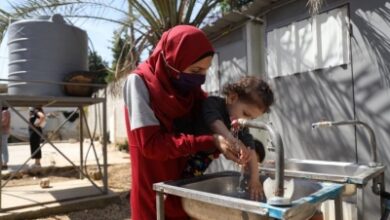Nepal’s imports grow for 1st time in 15 months
Kathmandu, Oct 30 (IANS) Nepal has recorded growth in imports in October for the first time in 15 months amid sluggish economic activities in the last several months, latest government figures showed.
The continued fall in imports took a break in mid-October, as the South Asian country imported goods worth 407.75 billion Nepali rupees (3.07 billion US dollars) during the first quarter of the current 2023-24 fiscal year, up 1.69 per cent year-on-year, according to the Department of Customs, Xinhua news agency reported.
The import of iron and steel, vehicles, machineries and diesel grew during the period, with petroleum products remaining the largest import item of the country.
Since the beginning of the 2022-23 fiscal year which started in mid-July 2022, Nepal’s overall imports had started to fall on a year-on-year basis, and a 16-percent fall was recorded in 2022-23.
According to information officer at the Department of Customs Punya Bikram Khadka, imports grew slightly due to a relative rise in economic activities ahead of the Dashain festival, the biggest festival of Nepali Hindus, which was celebrated last week.
“Unlike last year, the import ban on certain goods no longer continues and a rising inflow of remittances in recent months also contributes to growth in demands for imported goods,” Khadka told Xinhua.
Nepal started to curb imports from February 2022 due to a ballooning deficit of balance of payment and depleting foreign exchange reserves. A complete ban on the import of certain goods including vehicles, liquor, expensive mobile and TV sets was rolled out in April last year, but it was removed in December last year after it hit the government’s revenues hard.
Though the restrictive measures were rolled back, Nepal’s overall imports had remained lower over slumping economic activities.
Nepal’s economy grew by a mere 1.9 per cent in 2022-23 and is projected to grow by 3.9 per cent in 2023-24 by the World Bank in its Nepal Development Update report released in early October.
–IANS
int/svn



